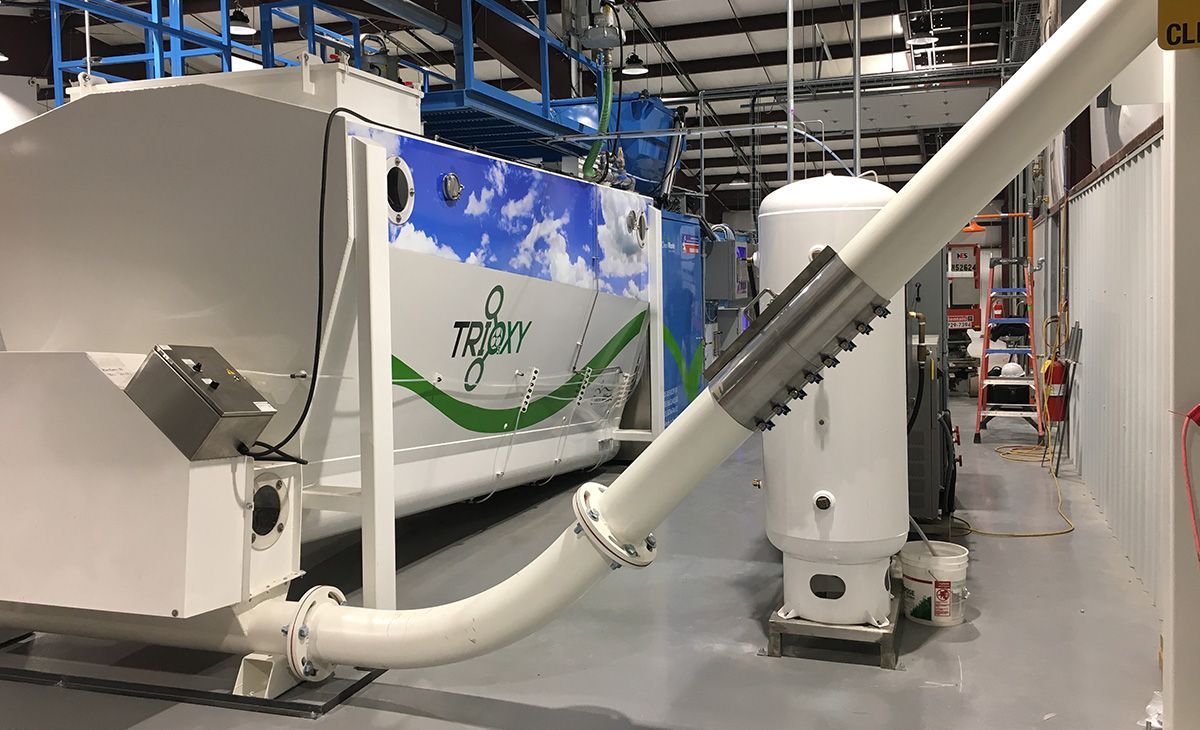The Importance Of Sustainable Waste Management For Hospitals
In the complex ecosystem of healthcare, the generation of waste is inevitable. However, how this waste—particularly biomedical waste—is managed, can have profound implications for environmental health and sustainability. That, along with an ever-increasing focus on
sustainability in healthcare and
environmental waste management, hospitals are uniquely positioned to spearhead the way in implementing eco-friendly waste solutions.

Elements of a Sustainable Medical Waste Management System
The question looming over hospital administrators is, "What constitutes a sustainable medical waste management system?" At its core, it's about reducing the environmental footprint of healthcare waste without compromising on health and safety standards. Systems like:
Waste Segregation
Starting at the point of generation, waste segregation is vital. Correctly identifying and separating waste ensures that recyclable or reusable materials do not end up in landfills unnecessarily and that hazardous waste is handled appropriately.
Transportation
Efficient and safe transportation of medical waste is another critical step. It prevents spillage and accidental exposure during transit, considerably reducing environmental and health risks.
Treatment and Disposal
Biomedical waste management demands responsible treatment and disposal methods. With advanced technologies like ozone sterilization, Clean Waste Systems offers solutions that embody waste management sustainability, effectively sterilizing hazardous waste in an eco-friendly manner.
Monitoring and Compliance
Regular monitoring and adherence to government regulations and standards are essential components of a sustainable waste management framework. Compliance ensures the highest levels of safety and sustainability are maintained.
Risks Associated with Improper Medical Waste Management
The proper disposal of medical waste is a complex but vital process for any healthcare provider. The ramifications of inadequate medical waste management ripple far beyond hospital walls, affecting the environment, the economy, and the health of populations.
Environmental Impact
The environmental consequences of poorly handled bio-medical waste are profound. Traditional disposal methods can lead to emissions that contribute to air pollution and contaminants that infiltrate soil and water sources. These pollutants undeniably have long-term environmental repercussions.
Financial Implications
Financially, hospitals bear the brunt of the costs associated with non-sustainable waste management practices through fines, penalties, and higher operational expenses. Conversely, implementing eco-friendly waste management systems can lead to significant cost savings over time, proving that an investment in sustainability is also an investment in a health facility’s financial stability.
Health Risks
Incorrect disposal of medical waste poses serious health risks, like the spread of infectious diseases. Hospitals must be committed to protecting both healthcare workers and the community. This can be done by ensuring that all bio-medical waste is treated and disposed of in a manner that precludes the risk of contamination and infection spread.
Best Practices for Sustainable Medical Waste Management
Hospitals can significantly mitigate negative impacts and contribute positively to public health and the environment by adopting best practices for sustainable waste management. This starts by adopting best practices for waste management and sustainability, which involves a holistic approach. It's about reducing the volume of waste generated, implementing robust segregation and treatment protocols, and employing technologies that reduce environmental impact. Practices such as reprocessing and recycling medical devices, utilizing digital records, and educating the staff on proper waste management all play an integral part in the success of this initiative.
Quick Look:
- Educate staff on proper waste segregation techniques
- Invest in energy-efficient waste treatment technologies
- Collaborate with certified waste management providers
- Regularly review waste management policies and procedures
- Commit to continuous improvements based on environmental performance data

5 Benefits Of Hospital Waste Management
When hospitals reassess and redesign their waste management strategies to be more sustainable, they stand to reap numerous benefits. Here are five key advantages that showcase the importance of integrating waste management and sustainability into healthcare practices:
1. A Safer Environment for Staff and Patients
Proper biomedical waste management is essential to maintaining a safe environment. When waste is not correctly segregated or sterilized, it poses health risks to anyone on the premises—patients, staff, and visitors alike. Advanced technologies like ozone can neutralize dangerous pathogens, ensuring a healthier hospital environment. Clean Waste Systems also minimizes transit risks by employing on-site sterilization of medical waste, effectively transforming it into non-biohazardous material after passing through their advanced treatment process, providing an added layer of safety for both the environment and healthcare facilities.
2. Compliance with Health Regulations
Hospitals must adhere to stringent guidelines for medical waste disposal. Clean Waste Systems ensures that your facility meets all regulatory standards through their medical waste treatment process, aligning operations with current legislation.
3. Reduction in Environmental Impact
Sustainability in healthcare is not just a buzzword; it is paramount to creating a greener future. Sustainable waste management practices like reusable containers and implementing environmental waste management systems help minimize the industry's carbon footprint.
4. Long-Term Cost Savings
Although the initial investment in sustainable practices might seem significant, the long-term cost benefits are undeniable. Streamlined waste disposal methods lead to decreased overhead expenses, proving cost-effective for healthcare institutions.
5. Reinforced Community Trust
A commitment to sustainability in waste management underscores a hospital's dedication to public health and environmental stewardship, strengthening trust among the community and enhancing the facility’s reputation.
Conclusion
Ensure that your facility's environmental responsibility is as healthy as the patients you serve.
In summary, the push for waste management sustainability within hospital operations is not just about checking off regulatory boxes—it is about ensuring a healthier, safer future for everyone. By understanding the critical components, risks, and best practices associated with sustainable waste management, hospitals can take a proactive approach that aligns with environmental excellence and patient care.
Ready to get started?
Request a quote today! Or visit
Clean Waste Systems to learn more about how they can assist you in managing your medical waste in a sustainable manner, ensuring compliance, safety, and peace of mind for both your facility and the environment.

